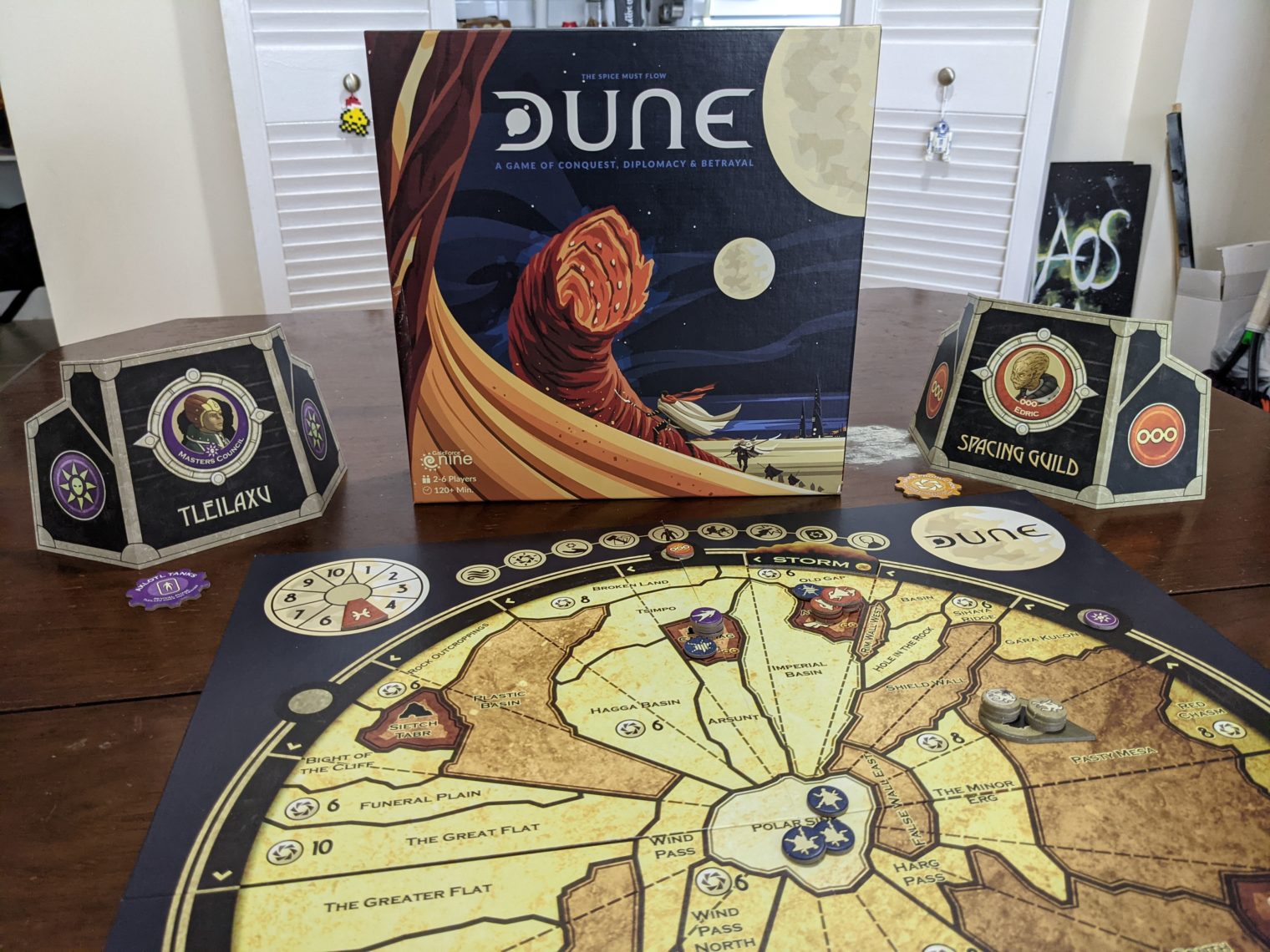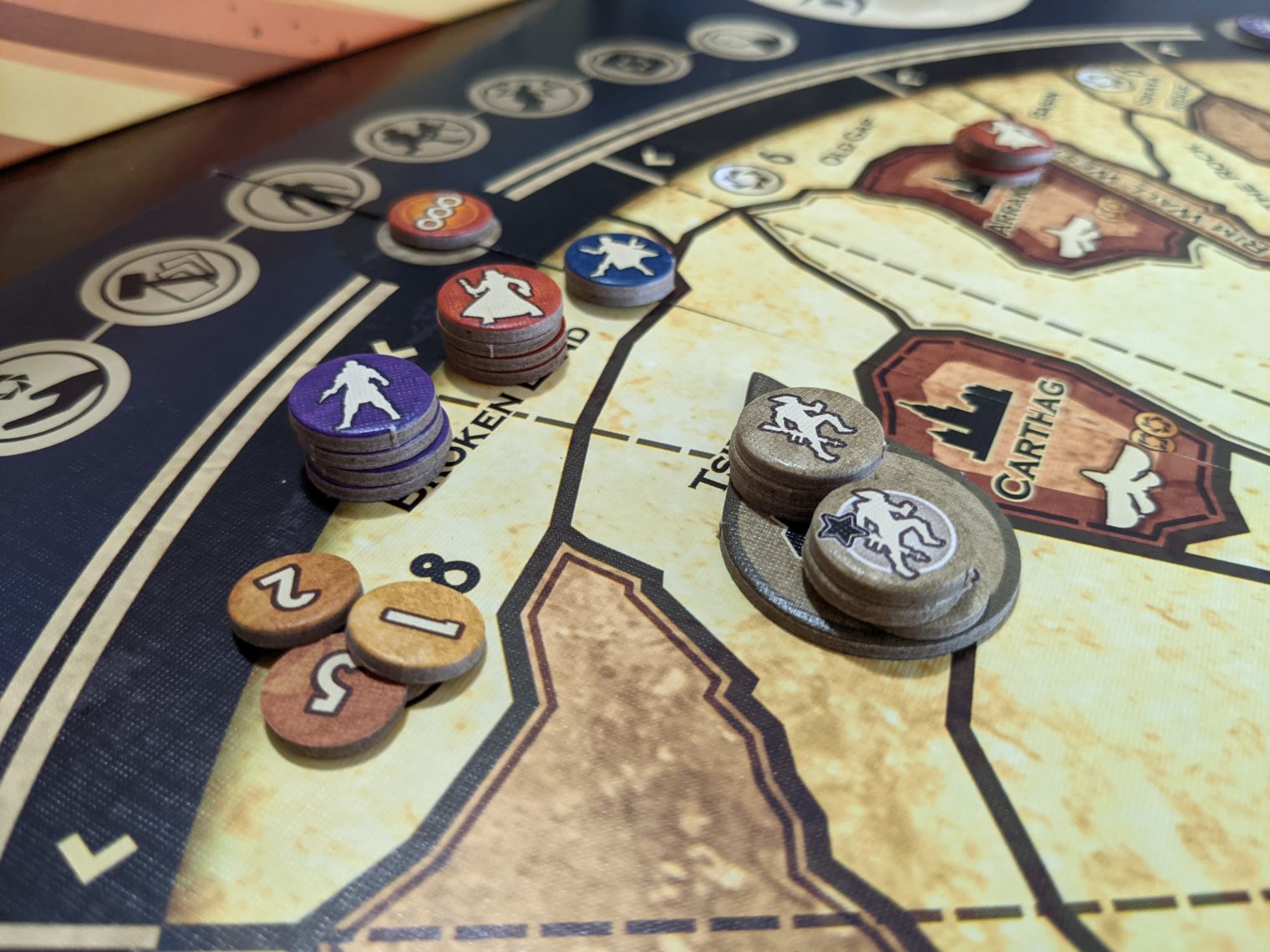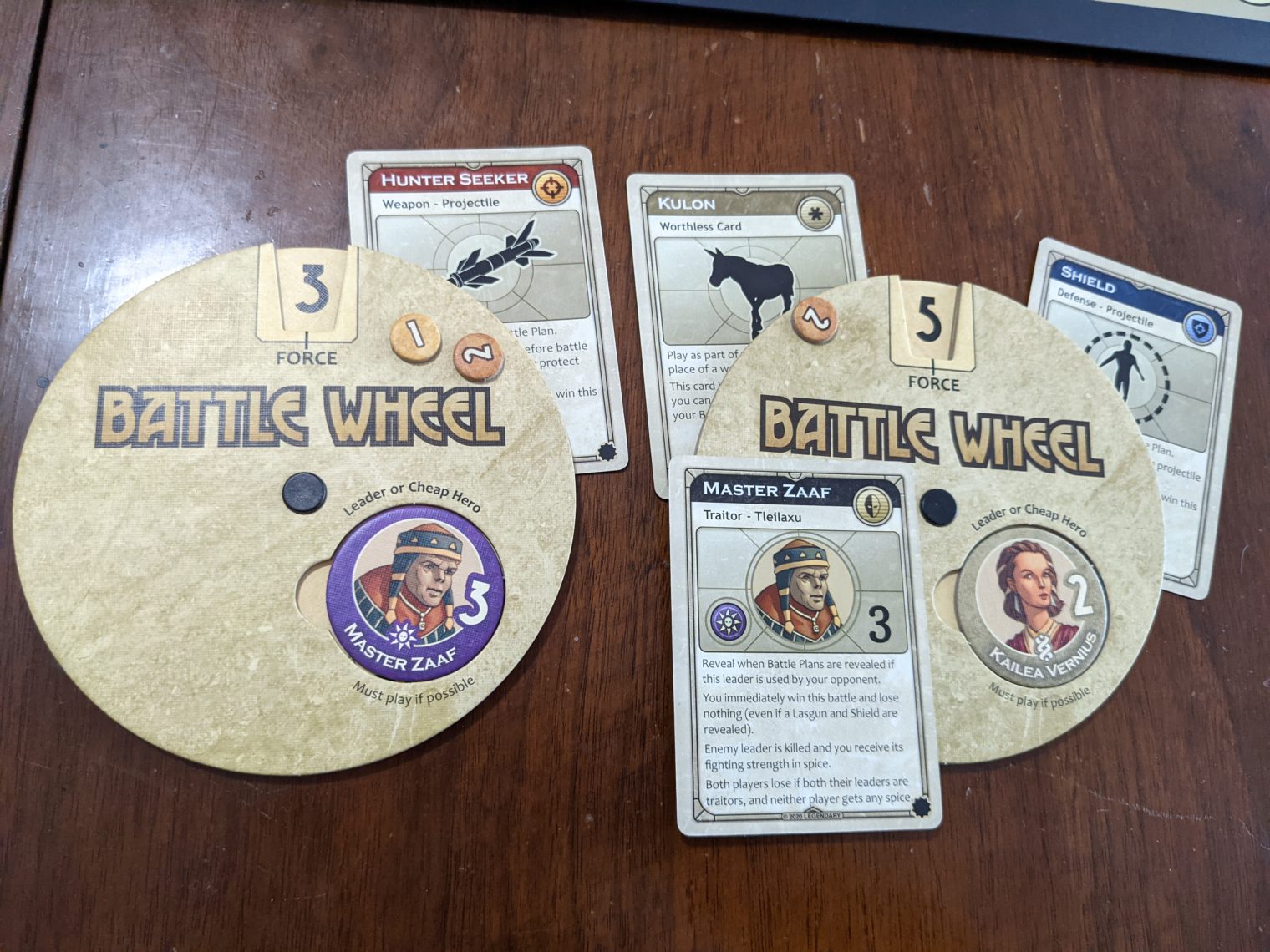Among many of my gaming circles, there is something of a generational divide. There are those who have been into this hobby longer than I have been alive and there are those who found the hobby at various points over the last ten years. Playing games with that older generation of gamers is something that I love to do for several reasons.
It is only a slight exaggeration to say that I can’t think of a single game that came out before Y2K. I know, intellectually, that there are hundreds of great games older than my cat. El Grande, Ra, Magic: The Gathering, Modern Art – these games are good games. But I’m young and impressionable and caught up in the rapture of the cult of the new. I like *new* games with fun components and complexities. I like Euros with minimal confrontation and maximum engine building. I like moving cubes up tracks.

Enter Dune, Stage Left.
Dune, this beautiful little 2019 reimplementation of a 1979 title, is a delightful game. It’s a surprising game to find on my table, being a war game with maximum confrontation and no little tracks for my cubes to travel up. Dune manages to create an intensely unbalanced, chaotic, stressful experience while making that feel entirely … fair? It manages this wonderful feat by employing the broken rule of game design: make every ability stupid and overpowered and then there are no overpowered abilities!

Some players have almost no spice (money, effectively). Some players get fistfuls of spice handed to them throughout the game. Some players have distinct combat advantages. One player gets to guess who will win the game and when they will win it – if they guess correctly, then they steal the win from that player. The whole game is a mess of abilities and exceptions and clarifications.
My biggest criticism of the game is that this mess demands a comprehensive and organized rulebook, which Dune absolutely fails to provide. You will encounter moments and concerns that the rules just fail to help you with. Run to BGG to find the answers you need. For a reimplementation of a 40-year-old game, this is a big disappointment.

But this mess manages to come together in an unpredictable and wild way, creating an experience absolutely unlike any game I have played before. With a simple and concise win condition (usually), the game asks the players to police the powerful and keep the game going. If a table fails to protect the points of interest, games can start and finish in a single round. My two most recent plays of this game lasted 36 minutes, and then 3 hours and 18 minutes. (That’s 23% of the Dune movie and 127% of the Dune movie, respectively – a massive variance!)
It’s definitely not a game I want to play often, as I find the table policing each other to prevent a winner to be a tiring aspect of a game, but it is certainly a unique and a rewarding experience. And I’m excited to see the movie this week after losing to the Bene Gesserit.
Comments
No comments yet! Be the first!